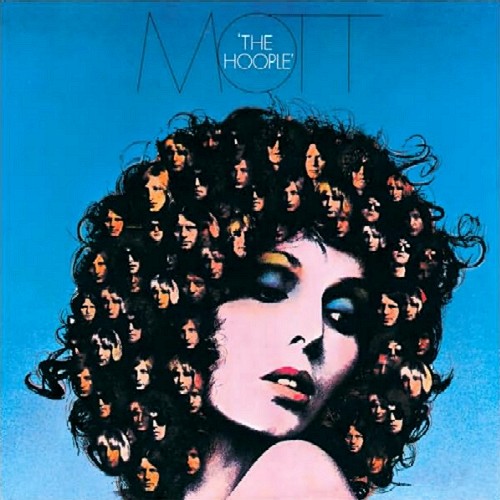Sometimes you really do need to be careful what you wish for. After years of hard-gigging, road-hardened Mott the Hoople had thrown in the towel in March 1972, only for the towel to be caught mid-flight by David Bowie, who as an encore got them out of their unfavourable record deal, donated to them a song that would become their long-awaited breakthrough hit, produced their next album and advised vocalist Ian Hunter that he should take sole leadership of the band.
Obviously, it was this last thing that didn’t sit well with guitar player Mick Ralphs, who shortly after the release of Mott decided that throwing his lot in with the remnants of Free and an itinerant former King Crimson bass player was where his future lie. The resulting band, Bad Company, did big business throughout the rest of the 70s, particularly in America, with the Ralph’s penned “Can’t Get Enough” being their signature tune and one of the undisputed classic rock songs of the era.
Ralphs’ departure had left Ian Hunter in a bit of quandary though. After years of being co-leader of Mott the Hoople, he suddenly found himself in a position where he had to do pretty much all the song writing for the band’s much-anticipated next album, The Hoople. True, Mott bass player Pete ‘Overend’ Watts contributed a single song, but by and large Hunter was frustrated that the rest of the band, particularly Ralphs’ replacement Luther Grosvenor (or, as he was known during his tenure with Mott, Ariel Bender) didn’t contribute much to the album other than their admittedly great playing and some assistance with arrangements.
It is for this reason that some fans consider The Hoople to be pretty much an Ian Hunter solo album in all but name. Some of Hunter’s most commercial work can be found on the album, as well as unmistakable signs that he had greater ambitions than being viewed as a glam-rock singles act. “Marionette” is almost a prototype for “Bohemian Rhapsody”, a monster hit single enjoyed by an act that would support Mott the Hoople as they toured to promote the album, and “Pearl ‘N’ Roy (England)” was a step away from the commerciality that Hunter was employing at the time. Best of all though is “Through the Looking Glass”, a song of crippling self-doubt, during which Hunter puts himself through the ringer and sounds pretty much exhausted and resigned to his fate. Few songwriters can put their foibles under such detailed scrutiny, but Hunter is considerably more grounded than your average rock star and on “Through the Looking Glass” he does so with a thrilling disregard for his own ego. True, I have a slight preference for the alternative version of the song that was released in the mid 90s, where Hunter’s resignation would ultimately erupt into white hot fury at himself, but the original album version could have been an absolutely killer closing track on what would become Mott the Hoople’s final album.
In retrospect that fact that “Through the Looking Glass” is not the final track on the last Mott the Hoople album is a significant missed opportunity, however it was never intended to be their final album. The fact that the album actually ends with the unashamed pop tune that is “Roll Away the Stone”, although now slightly jarring, at the time would have lifted the mood and given hope for future releases and a continued presence in both the album and singles chart.
Over the months following The Hoople’s release Grosvenor would be replaced by former Spider from Mars Mick Ronson, who would contribute to the brilliant, but ultimately commercially disappointing single, “Saturday Gigs”, before he and Hunter walked away from the band. The rest of the band would recruit new band members, and stagger on as Mott, before morphing into The British Lions as the 70s drew to a close. In Ronson, Hunter had found the creative counterweight he had missed since Mick Ralphs’ departure, however due to legal and management shenanigans, the album they recorded together was released under Hunter’s name only.
The Hoople saw Mott the Hoople go out on the biggest high they could have done under the circumstances, with Hunter’s song writing being diverse enough to deliver both commercial hit singles and satisfying album cuts and the band becoming ever more ambitious in their material. The thing is, if they had continued, would they have continued to be successful? Looking back now, probably not. The music scene was entering a state of flux, glam-rock was on the way out and the punk scene which early Mott the Hoople had indirectly influenced was still a few years away.
They had no way of knowing it at the time, but Mott the Hoople are almost unique in being a commercially successful act who split at exactly the right time, so avoiding their own obsolescence. What band could wish for more?














No Comment